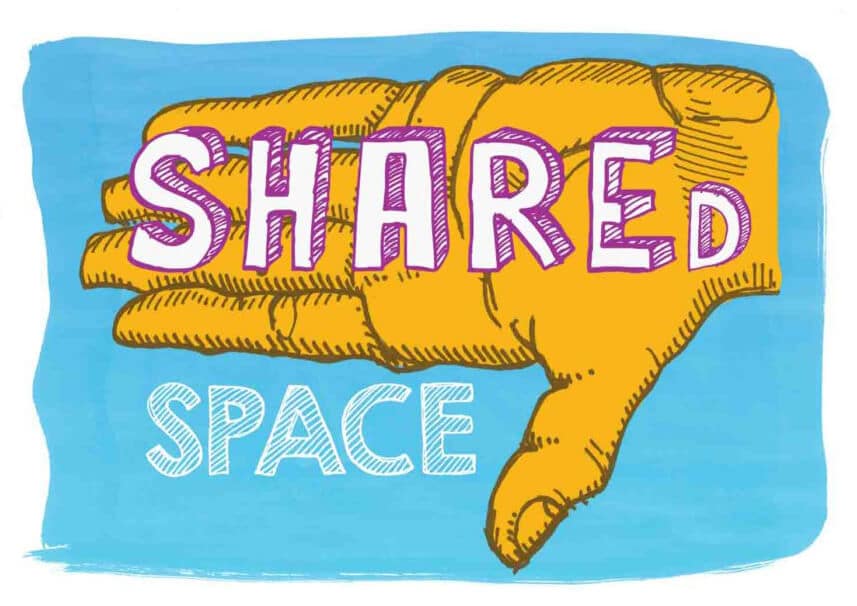 Every day we’re surrounded by images of romantic relationships: in our own lives, on our TVs, in the news, in the books we read, in the music we listen to and in the content we see on social media platforms. We love to root for and look up to relationships that we admire, especially those that surround us in the form of celebrity and pop culture. Who doesn’t love the Obamas? Who doesn’t love the Twitter banter between our favourite celebrity couples? Who doesn’t have a couple, fictional or real, that they root for and idealize so much that they deem them “goals” and hope to model their own relationships after them?
Every day we’re surrounded by images of romantic relationships: in our own lives, on our TVs, in the news, in the books we read, in the music we listen to and in the content we see on social media platforms. We love to root for and look up to relationships that we admire, especially those that surround us in the form of celebrity and pop culture. Who doesn’t love the Obamas? Who doesn’t love the Twitter banter between our favourite celebrity couples? Who doesn’t have a couple, fictional or real, that they root for and idealize so much that they deem them “goals” and hope to model their own relationships after them?
On the flip side of that, haven’t we all also had those couples that we’ve hoped would break up because they were unhealthy, toxic and/or abusive? The real question is about what we see as healthy and unhealthy, and what really is healthy and unhealthy. While the terms “healthy relationship” and “unhealthy relationship” are often associated with romantic relationships, any kind of relationship we have in our lives can fall under those categories.
The dangerous part is when relationships are presented to us as healthy, stable and ideal when they are, in reality, toxic and unhealthy. Disney relationships are a perfect example of this. While Disney is all sorts of magical, let’s recognize that the romantic relationship in Beauty and the Beast involved a hostage exchange and some high-key Stockholm syndrome. Not to mention that relationships represented in pop culture are, for the most part, incredibly heteronormative, and there is still a serious lack of representation of couples who do not consist of straight, cisgender men and women. This misrepresentation in media leaves the consumers of that media, especially our youth, vulnerable to believing that abuse and toxic behaviour is actually an equivalent of love.
It’s also important to remember that while abusive behaviour can manifest itself publicly and obviously, it is also often hidden away behind closed doors. The truth is that we don’t always know the reality of the couples we idealize, and this is something we must take into account when receiving disclosure from survivors of intimate partner violence and unhealthy relationships, in order to avoid invalidating their experiences with harmful comments such as “Really? But they seem so nice to me!”
There is a lot of discourse surrounding red flags in relationships, the little incidents and comments that serve as warnings for abusive and toxic behaviour that follow them. While it is important to recognize and talk about those red flags, I think it is healthy and beneficial to talk about the green flags in our relationships: the positive behaviours that create a healthy foundation to build a relationship on top of. Here are a few (of many) green flags that we should all strive to have, not only in our romantic relationships, but in every kind of relationship, whether it be with a friend, a coworker or a family member.
- A relationship where each person’s boundaries are communicated and respected
- A relationship where there are equal amounts of trust on each side
- A relationship wherein you value each other’s opinions and can disagree and work through arguments healthily
- A relationship free of manipulation, coercion and degradation
- A relationship that supports individual personal growth and goals
- A relationship that knows how to compromise
- A relationship where each party feels completely safe and secure
- A relationship wherein you communicate openly and honestly your needs, boundaries, fears and feelings
When we consume media representations of romantic relationships (or relationships of any kind), we have to think critically about what we’re being fed and how it actually translates to our own realities. One reality we all share is that we’re deserving of healthy relationships full of every green flag you can possibly think of and that we are surrounded by those who support us in asserting that reality should we find ourselves in an unhealthy relationship.
If you are wondering if your relationship is healthy, you can get a healthy relationship assessment at SHARE. Just email [email protected] to make an appointment.





